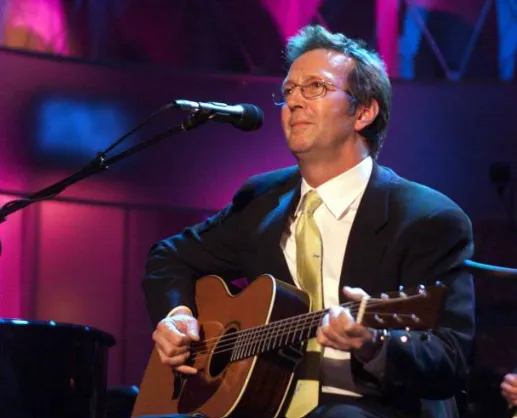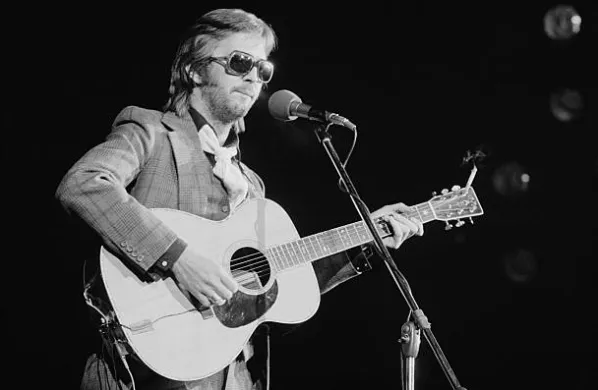Disregarded in Hardship: Exploring "Nobody Knows You When You're Down and Out" by Eric Clapton
(watch the video below)
"Nobody Knows You When You're Down and Out" is a poignant blues standard that has been interpreted and performed by numerous artists, but perhaps none as iconic as Eric Clapton. In this comprehensive analysis, we delve into the origins of the song, its evolution, lyrical depth, musical elements, and its enduring significance. From its roots in the African American blues tradition to its resonance in contemporary culture, this essay explores the timeless themes of adversity, resilience, and the fickleness of fortune encapsulated in this classic composition.
Music has long been a mirror reflecting the human experience, and few genres capture the raw emotions of life's trials and tribulations quite like the blues. "Nobody Knows You When You're Down and Out," a song that has become synonymous with hardship and resilience, stands as a testament to the enduring power of music to express the complexities of the human condition. Penned by Jimmy Cox in the early 20th century and immortalized by Eric Clapton in the 1970s, this timeless ballad continues to resonate with audiences around the world.

To understand the significance of "Nobody Knows You When You're Down and Out," it is essential to trace its origins back to the rich tapestry of the blues tradition. The song was first recorded by Bessie Smith in 1929, during the height of the Great Depression, a period marked by economic hardship and social upheaval. Drawing from the experiences of African Americans living in the Jim Crow South, the lyrics poignantly capture the sense of alienation and despair felt by those marginalized by society.
Over the years, "Nobody Knows You When You're Down and Out" has been reinterpreted by countless artists across different musical genres, each bringing their unique perspective to the song. However, it was Eric Clapton's rendition on his 1970 album, "Layla and Other Assorted Love Songs," that catapulted the song to mainstream success. Clapton's soulful vocals and emotive guitar playing breathed new life into the classic blues standard, introducing it to a new generation of listeners.
At the heart of "Nobody Knows You When You're Down and Out" lies its poignant lyrics, which eloquently capture the universal experience of facing adversity and betrayal. The opening lines, "Once I lived the life of a millionaire / Spending my money, I didn't care," set the tone for the narrative that follows, detailing the protagonist's fall from grace and subsequent isolation. Themes of loss, regret, and resilience permeate the song, as the protagonist reflects on the transient nature of wealth and the fickleness of human relationships.
The refrain, "Nobody knows you when you're down and out," serves as a sobering reminder of the ephemeral nature of fame and fortune. In a world driven by materialism and social status, the song's message resonates with audiences of all backgrounds, highlighting the importance of empathy and compassion in times of hardship.

In addition to its evocative lyrics, "Nobody Knows You When You're Down and Out" is distinguished by its soulful melody and bluesy instrumentation. Eric Clapton's masterful guitar playing infuses the song with a sense of longing and melancholy, complemented by the subtle nuances of the accompanying instrumentation. The song's slow tempo and sparse arrangement allow Clapton's vocals to take center stage, conveying the emotional depth of the lyrics with raw sincerity.
The use of dynamics, phrasing, and expression further enhances the song's impact, drawing listeners into the protagonist's world of pain and introspection. From the plaintive wail of the guitar to the haunting strains of the piano, each musical element contributes to the song's atmospheric quality, creating a sense of intimacy and vulnerability that is impossible to ignore.
Beyond its musical merits, "Nobody Knows You When You're Down and Out" holds a special place in the cultural zeitgeist, serving as a poignant reminder of the enduring power of the blues tradition. The song has been covered by artists across a wide range of genres, from jazz and soul to rock and pop, attesting to its timeless appeal and universal themes.
In popular culture, references to "Nobody Knows You When You're Down and Out" abound, appearing in films, television shows, and literature as a symbol of resilience in the face of adversity. Its message of perseverance and self-reliance continues to inspire audiences around the world, offering solace to those grappling with their own trials and tribulations.

In conclusion, "Nobody Knows You When You're Down and Out" stands as a testament to the enduring power of music to express the complexities of the human experience. From its humble beginnings in the African American blues tradition to its enduring legacy in contemporary culture, the song continues to resonate with audiences of all backgrounds, offering a poignant reminder of the resilience of the human spirit.
Through its evocative lyrics, soulful melody, and bluesy instrumentation, "Nobody Knows You When You're Down and Out" captures the essence of hardship and adversity with raw sincerity and emotional depth. As Eric Clapton's iconic rendition continues to captivate listeners around the world, the song remains a timeless classic that speaks to the universal truths of the human condition.
In an ever-changing world marked by uncertainty and upheaval, the enduring message of "Nobody Knows You When You're Down and Out" serves as a beacon of hope and resilience, reminding us that even in our darkest moments, we are never truly alone.
Video
Lyrics
Let's sing along with the lyrics !
Once I lived the life of a millionaire
Spent all my money, I just did not care
Took all my friends out for a good time
Bought bootleg liquor, champagne and wine
Then I began to fall so low
Lost all my good friends, I did not have nowhere to go
I get my hands on a dollar again
I'm gonna hang on to it till that eagle grins
'Cause no, no, nobody knows you
When you're down and out
In your pocket, not one penny
And as for friends, you don't have any
When you finally get back up on your feet again
Everybody wants to be your old long-lost friend
Said it's mighty strange, without a doubt
Nobody knows you when you're down and out
When you finally get back upon your feet again
Everybody wants to be your good old long-lost friend
Said it's mighty strange
Nobody knows you
Nobody knows you
Nobody knows you when you're down and out



